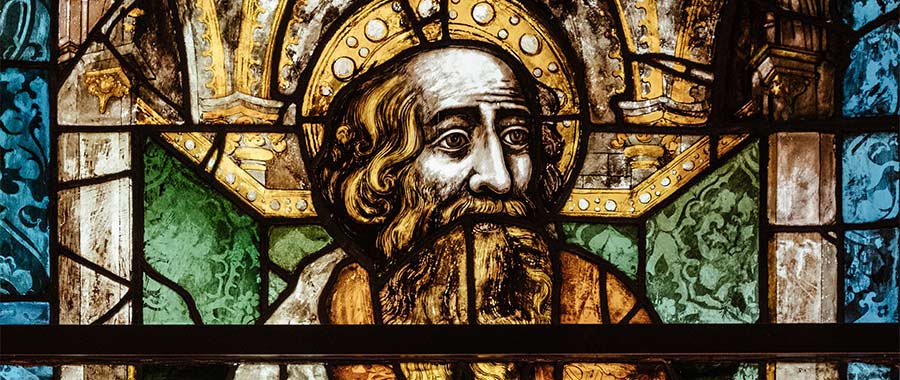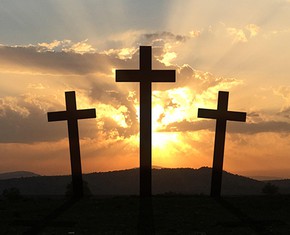The views expressed in our content reflect individual perspectives and do not represent the authoritative views of the Baha'i Faith.
The remarkable figure of Joseph—the greatest male archetype of purity in world scripture—appears in four world Faiths.
Known in various religious traditions for his striking beauty—both his physical appearance and his inner spiritual character—Joseph is a luminary of four world religions: Judaism, Christianity, Islam and the Baha’i Faith.
To Jews, the prophet Joseph is the link to Moses and the twelve tribes of Israel. To Christians, he is a precursor of Christ. To Muslims, he is a prophet—the only prophet to whom a whole chapter of the Qur’an is devoted. The very first book revealed by the Bab on the first night of the Babi dispensation was his commentary on this surah of Joseph. In various tablets Baha’u’llah likened himself to “the divine Joseph” and compared the recognition of his revelation to “the sweet savours” of Joseph’s famed coat of many colors:
Cleanse thy heart from every blasphemous whispering and evil allusion thou hast heard in the past, that thou mayest inhale the sweet savours of eternity from the Joseph of faithfulness, gain admittance into the celestial Egypt, and perceive the fragrances of enlightenment … – Baha’u’llah, Gems of Divine Mysteries, p. 23.
Thus, over millennia through multiple religious dispensations, Joseph looms as a larger-than-life figure, seemingly unapproachable and inimitable. His spotless purity alone renders him a formidable role model.
In the West it has been said that Shakespeare and the Bible are each one-half of the world, and that the marriage of the two gives birth to wisdom. The truth of such a synthesis becomes apparent when we compare Joseph’s odyssey of transformation with Edgar’s in King Lear.
Contrary to the acclaimed Joseph, Edgar is among the least celebrated main characters of Shakespearean tragedy. However, by paralleling their coming-of-age adventures in overcoming unjust adversity, we uncover a psychological depth to Joseph and the metaphysical growth of Edgar. The former is rendered more humanly inimitable, the latter more spiritually heroic. Together they demonstrate what practical steps we all can take to raise ourselves up from the lowest depths of the most violent and difficult tests in order to attain a sovereignty of self.
Can Clothes Make the (hu)Man?
Just as we often change clothes for different roles or tasks (to go on a hike, on a date, or on a job interview) our dreams about clothing (coats, shoes, hats) often imply a possible or necessary change in our role. In like manner, dreams of being naked often indicate our vulnerability, perhaps as it attempts to hide from its weaknesses and/or from the world. Just as wearing a disguise intentionally conceals our identity, whether for escape or for deceit, so when Joseph receives a coat of many colors from his father Jacob, we sit up and take notice.
As a rainbow includes all color possibilities, such a garment suggests the many roles Joseph will inhabit during the up and down adventures of his mythic life. However, Shakespeare gives us no rainbow robe of foreshadowing in his comfortless King Lear—we receive no hint that his character of Edgar will also evolve into a man for all seasons. But like that favored son, Edgar proves to be as equally multifaceted as multi-garbed when, suddenly outcast like Joseph, he evolves into an exemplary archetype for weathering unjust adversity.
Both flawed youths personify how one can blossom by becoming a master of inner spiritual transformation. It’s no wonder that Joseph is the last word in Genesis and Edgar has the last word in Shakespeare’s great drama. The characters of both deserve our close attention, if we too would be king—not of Egypt or Britain, but of our multiple identities. As the Baha’i teachings say:
Let all be set free from the multiple identities that were born of passion and desire, and in the oneness of their love for God find a new way of life. – Abdu’l-Baha, Selections from the Writings of Abdu’l-Baha, p. 76.
At the outset of their stories, both Joseph and Edgar are naïve youths. Joseph foolishly—even boastfully—tells his brothers of two inflated dreams he has had. In one he says the sun, moon and stars bowed down to him, and in the other he says that all his brothers bowed down to him. His father Jacob scolds him for recounting such dreams.
Jacob knows his other sons already envy their younger brother because he himself favors Joseph. But foolish Jacob makes no effort to hide his preference, even gifting Joseph with a fancy coat of many colors. Joseph compounds the problem—whether naïve, vain or willfully blind, he flaunts his favorite son status.
Consequently, like so many Biblical and Qur’anic figures, Joseph is not a flawless museum piece under glass, but a work-in-progress, a relatable and empathetic character. After all, his envious brothers set out to murder him. (“Come let us slay the dreamer … and we will see what will become of his dream”).
In Shakespeare’s play Edmund, the bastard brother of Edgar, also seethes with envy because of their father’s preferential treatment of his “legitimate” son. Blind to his brother’s envy, Edgar gullibly accepts embittered Edmund’s lies as truth. Like Joseph, he too loses his home and almost his life due to brotherly deceit. Both Joseph and Edgar find themselves exiled, not just from their homes, but also from their selves. Both are stripped of their garments of identity: “My name is lost,” says Edgar.
Joseph and Edgar find themselves literally stripped naked: Joseph of his coat of many colors and Edgar “the naked fellow” of all but a blanket. Both sons find themselves symbolically disrobed of their grandiose sense of self as the favorite child. Naked men, stripped of the “lendings” of civilization, their social personas and comforting self-concepts, then become reduced to “the thing itself,” according to Shakespeare’s drama. Shakespeare tells us that unless “such a poor bare, forked animal” re-creates himself in his Maker’s image, he will remain “no more than this.”
The character of King Lear provides a sobering example of the great difficulty of personally transforming into the better angel of our nature. But a ray of light penetrates the dreary landscape of this bleak play. As a counterpoint to the king, Lear’s godson Edgar labors mightily through his own travails and painfully rebirths himself, not just by donning the garb of various personas and professions, but also by putting on the garment of morality and justice. The Baha’i teachings call this garment “the mantle of life,” the robe of “well-being and development:”
All praise and glory be to God Who, through the power of His might, hath delivered His creation from the nakedness of non-existence, and clothed it with the mantle of life. From among all created things He hath singled out for His special favor the pure, the gem-like reality of man, and invested it with a unique capacity of knowing Him and of reflecting the greatness of His glory. This twofold distinction conferred upon him hath cleansed away from his heart the rust of every vain desire, and made him worthy of the vesture with which his Creator hath deigned to clothe him. It hath served to rescue his soul from the wretchedness of ignorance.
This robe with which the body and soul of man hath been adorned is the very foundation of his well-being and development. – Baha’u’llah, Gleanings from the Writings of Baha’u’llah, pp. 77-78.
















Comments
Sign in or create an account
Continue with Googleor